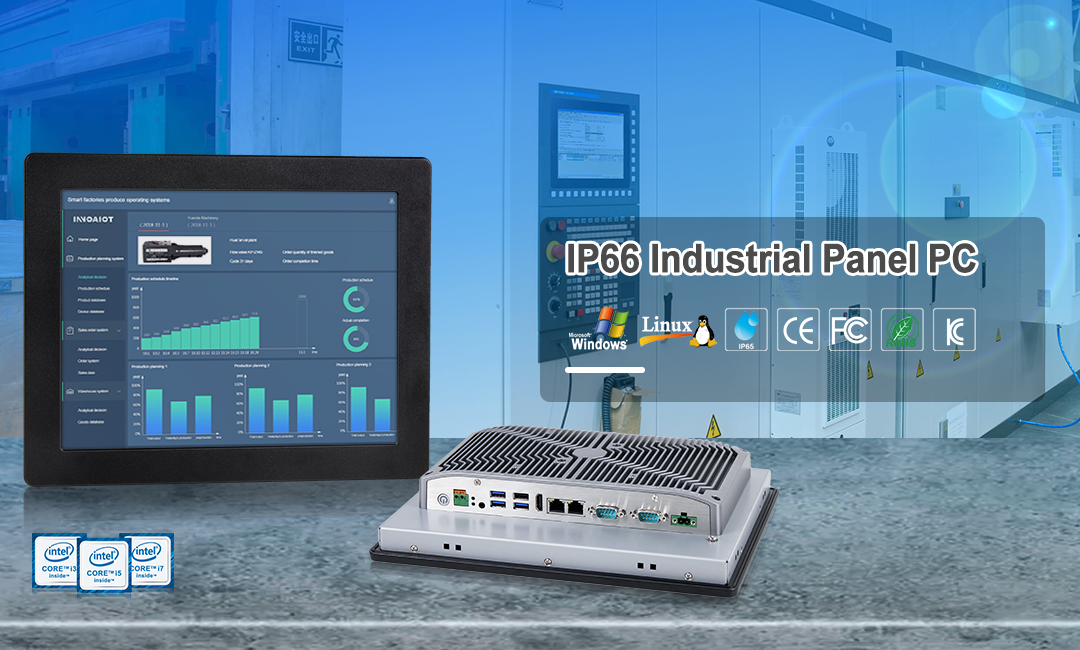How Does a PLC Differ from an Ordinary General-Purpose Computer

When you think of computers, what usually comes to mind are the machines we use for browsing the internet, writing documents, or even playing games. However, not all computers are built for these general tasks. In the industrial world, a different kind of computer, known as a Programmable Logic Controller (PLC), plays a crucial role in automation and control systems.
In this article, we'll explore how a PLC differs from a general-purpose computer and why it's essential in industrial automation. We'll also look at how these differences make PLCs uniquely suited for their specific tasks.
What is a PLC?
A Programmable Logic Controller, or PLC, is a type of computer specifically designed for industrial applications. It controls machinery and processes in factories, plants, and other industrial settings. Unlike general-purpose computers, which can perform a wide array of tasks, PLCs are built for specific control tasks and reliability under harsh conditions.
Key Differences Between PLCs and General-Purpose Computers
1. Purpose and Application
The primary difference between a PLC and a general-purpose computer lies in their intended use. General-purpose computers are designed for a variety of tasks, such as running software applications, browsing the internet, and more. They are versatile and can handle multiple functions simultaneously.
On the other hand, PLCs are specialized for industrial automation. They are used to control machinery and processes, ensuring tasks are carried out with precision and reliability. This specialization allows PLCs to perform in environments where general-purpose computers would struggle.
2. Operating Environment
PLCs are built to withstand the harsh conditions often found in industrial environments. This includes extreme temperatures, dust, moisture, and vibrations. They are housed in rugged enclosures to protect their components from damage.
General-purpose computers are not typically designed to handle such conditions. They are better suited for office or home environments where conditions are more stable and controlled.
3. Real-Time Processing
One of the crucial features of a PLC is its ability to process data in real-time. Industrial automation often requires immediate responses to changes in the environment. For example, if a sensor detects an anomaly in a manufacturing process, the PLC must respond instantly to prevent damage or defects.
General-purpose computers, while fast, are not optimized for real-time processing. Their operating systems are designed to handle various tasks, which can introduce delays in processing time-sensitive data.
4. Reliability and Durability
In industrial settings, reliability is paramount. A failure in the control system can lead to costly downtime and even safety hazards. PLCs are designed with reliability in mind. They have redundant systems, error-checking protocols, and are built to run continuously without failure.
General-purpose computers, while reliable for everyday use, do not offer the same level of durability and redundancy. They are more prone to crashes and require regular maintenance and updates.
5. Programming and Flexibility
PLCs are programmed using specialized languages such as Ladder Logic, Function Block Diagram, or Structured Text, which are tailored for control tasks. This programming is designed to be intuitive for engineers and technicians working in industrial settings.
General-purpose computers use a variety of programming languages like Python, Java, or C++, which are designed for a broader range of applications. While flexible, they can be more complex for specific control tasks.
6. Input/Output Capabilities
PLCs are equipped with numerous input and output ports to connect directly with sensors, actuators, and other industrial devices. This extensive I/O capability allows PLCs to manage multiple devices and systems simultaneously, ensuring seamless automation.
General-purpose computers can also connect to external devices, but they require additional hardware interfaces and are not optimized for direct control of industrial equipment.
Advantages of Using PLCs in Industrial Automation
1. Enhanced Performance
PLCs offer superior performance in industrial settings due to their specialized design. They can handle complex control tasks with precision, ensuring processes run smoothly and efficiently.
2. Easy Maintenance
PLCs are designed for easy maintenance and troubleshooting. Their modular design allows for quick replacement of components, minimizing downtime during repairs.
3. Scalability
As industrial operations grow, so can PLC systems. They are highly scalable, allowing for the addition of more modules or connections as needed without significant reconfiguration.
4. Cost-Effectiveness
While the initial cost of PLCs may be higher than general-purpose computers, their reliability and low maintenance costs make them a cost-effective solution in the long run. The reduction in downtime and increase in productivity quickly offset the initial investment.
Real-World Applications of PLCs
PLCs are used across various industries, including manufacturing, automotive, food processing, and energy. Here are a few examples:
- Manufacturing: PLCs control assembly lines, ensuring precise timing and coordination of machinery.
- Automotive: In car manufacturing, PLCs manage robotics and conveyor systems for efficient production.
- Food Processing: PLCs ensure that food products are processed under the correct conditions, maintaining quality and safety.
- Energy: In power plants, PLCs regulate systems to ensure stable and efficient energy production.
In summary, while PLCs and general-purpose computers are both types of computers, their roles and capabilities differ significantly. PLCs are specifically designed for industrial automation, offering reliability, real-time processing, and robust performance in harsh environments. These features make them indispensable in industries where precise control and continuous operation are critical.
Understanding the differences between PLCs and general-purpose computers can help you appreciate the unique role each plays in our technologically advanced world. Whether you're involved in industrial automation or simply curious about technology, recognizing these distinctions can enhance your knowledge of how our modern industries operate efficiently and safely.
